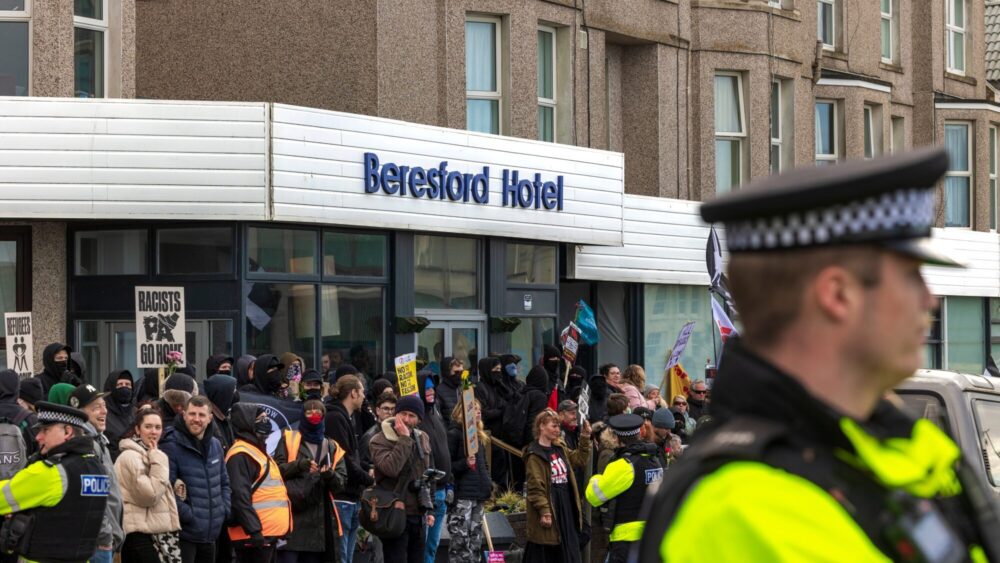
Beresford Hotel in Newquay, Cornwall
Photo: JMundy / Shutterstock.com
A whole year into Rishi Sunak’s premiership, officials are finally looking to stop the practice of housing illegal migrants in hotels. Robert Jenrick, the immigration minister, said “these hotels should be assets for their local communities … not housing illegal migrants at unsustainable cost to the taxpayer”—as though campaigners haven’t been saying exactly this for months and months on end.
The British taxpayer has been forking out roughly £8 million (€9.2 million) every day to house more than 50,000 migrants in 400 hotels across the country. Jenrick described this policy, which he has been overseeing, as “completely unacceptable” and said that the first “exits” will take place in the “coming days.”
Sharp rhetoric to one side, the shift will be slow. Just 50 hotel contracts are set to be dropped after three months (on January 31st) and a further 50 after another three months (at the end of March). It is unclear when the use of the other 300 hotels will come to an end.
Migration Watch Chairman Alp Mehmet said this was a “small, if welcome step,” but asked, “Why was it allowed to get to this stage?” He told The European Conservative:
More concerning is that the backlog of asylum applicants is now being whittled down by waving people through without proper consideration of the facts. This is an amnesty in all but name that will come back to bite the government.
The question now is: where will these migrants be sent instead, since removal schemes seem likely never to go ahead, and at what cost?
The Times revealed this week that the government has paid £15 million (€17.2 million) for an abandoned prison site that the previous owners bought for just £6 million (€6.9 million) a year ago. This suggests that officials are paying well over the odds in their efforts to cut costs.
In another report, the paper said that “about 50” migrants are also now being housed in the Bibby Stockholm “floating prison,” whereas The Tablet puts the figure at just 21. The barge has so far resulted in more embarrassment than success for the government’s ‘efforts’ to house migrants cheaply, with much of the first group sent there—after having crossed the Channel—refusing to board due to their “severe fear of water.”
These sites, as well as a government policy forcing migrants to share rooms, are understood to have averted the need for the use of an additional 72 hotels.
